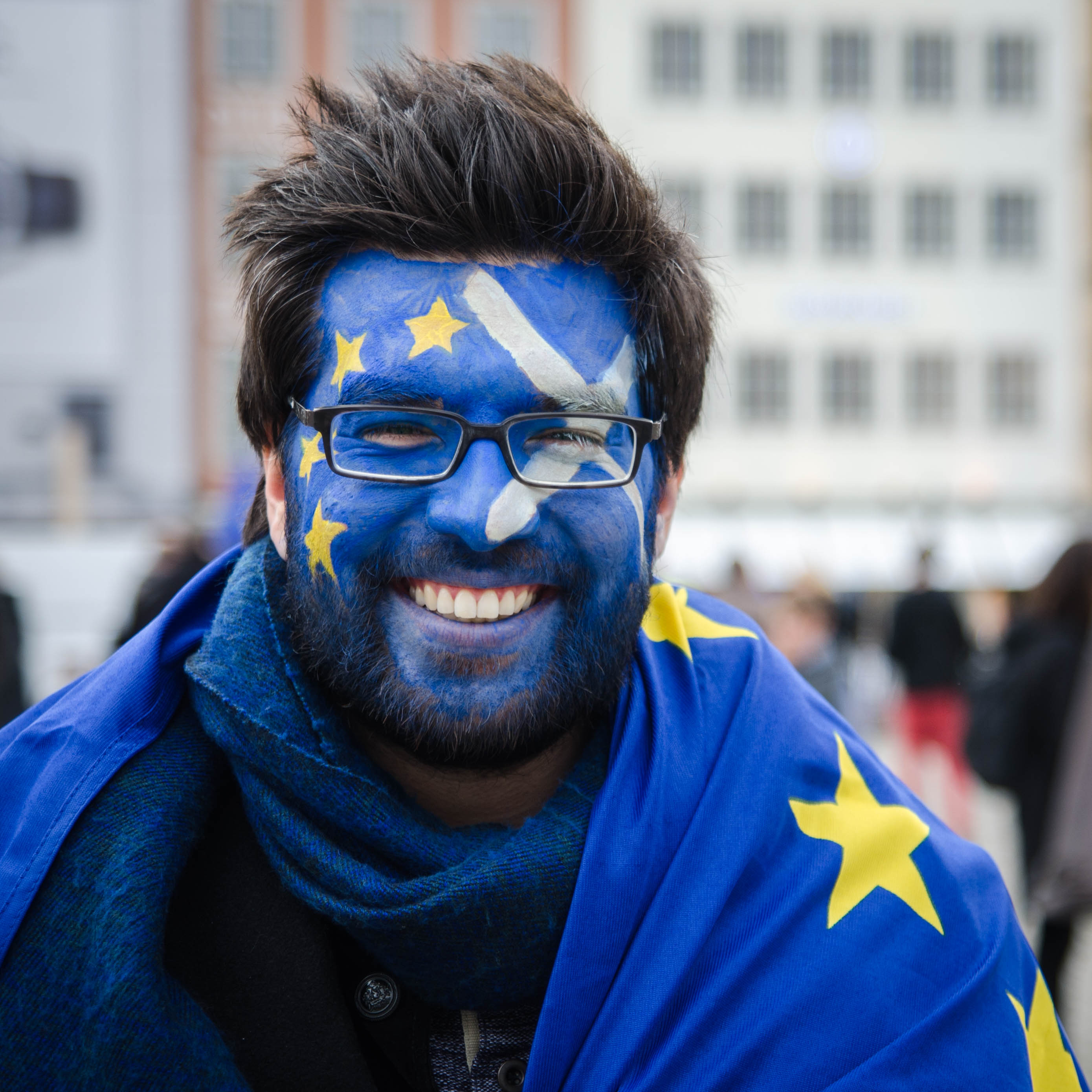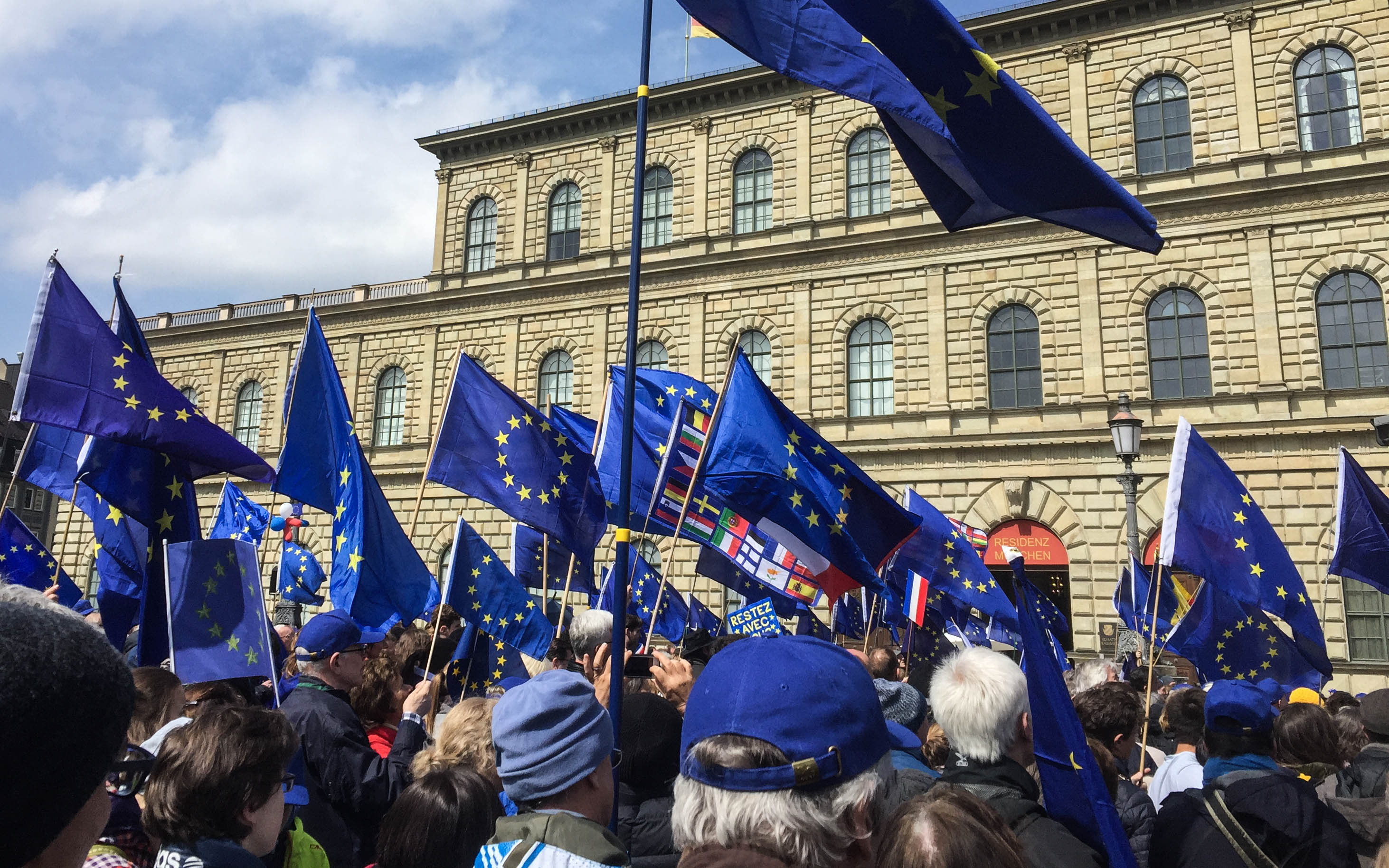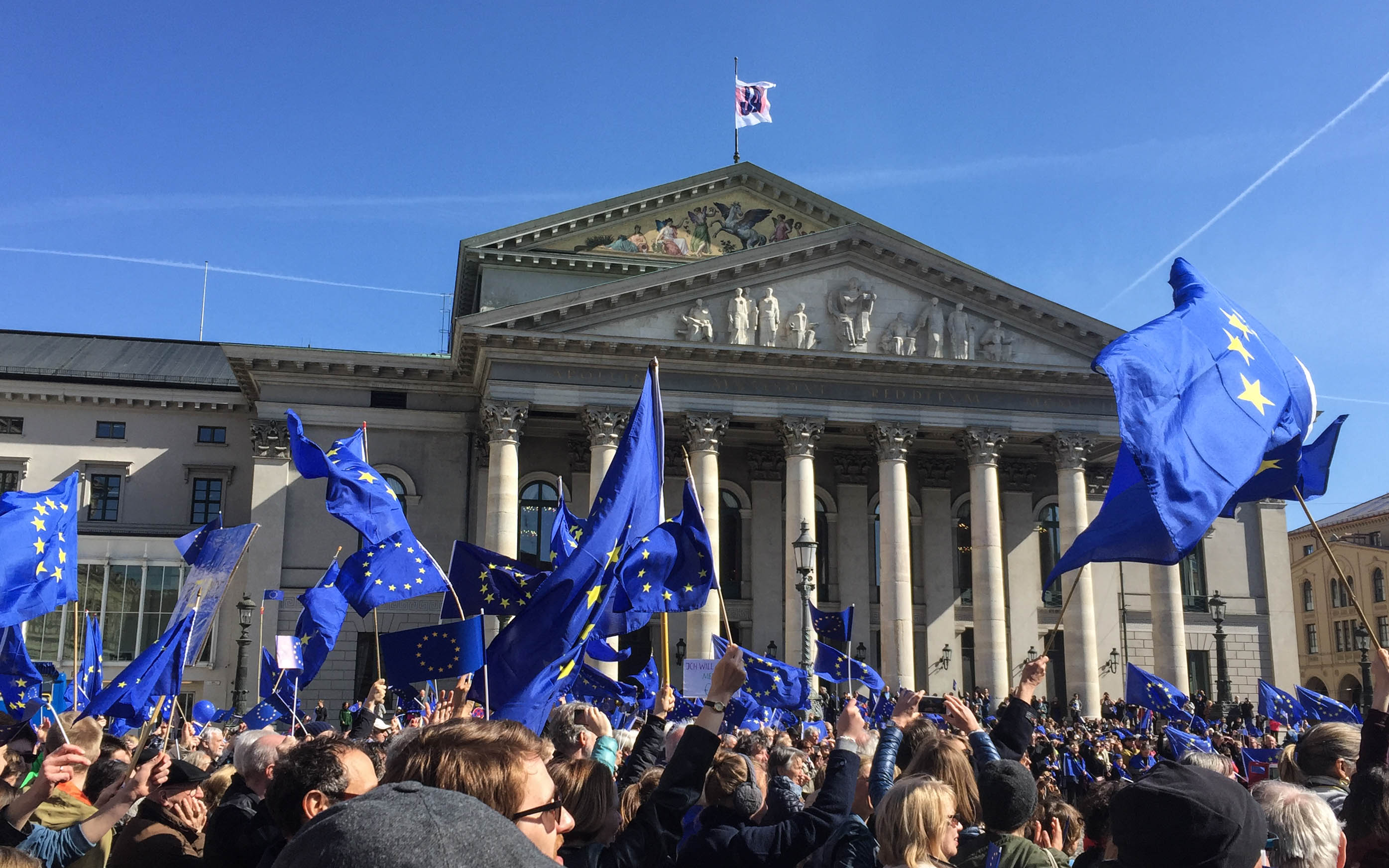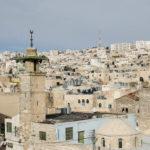Rallies of right-wing populists and anti-EU demonstrations have been the order of the day in Europe. Pro-European and liberal movements, however, only usually make their voices heard just after an election has been decided in favour of nationalists and populists. But Pulse of Europe wants to change that and give the fans of a united Europe a voice. We spoke with Akilnathan Logeswaran, who has been out on the streets of Munich, demonstrating for the EU since February.
Interview: Anja Meunier / 28.4.2017
Akil is 28 years old and grew up in Munich. He studied in Augsburg and Vienna and later found work in Copenhagen, Vienna, Warsaw and Munich; a European through and through. Since February, he has become a well-known face in the Pulse of Europe demonstrations in Munich and is committed to the preservation of the European Union.

Akilnathan Logeswaran at Pulse of Europe Munich © Anja Meunier
Meeting Halfway: Why are you demonstrating for the EU, why are you out on the streets for Europe?
Akil: I have always felt that Europe was very important to me, but I never felt the need to go out into the streets to protest. Now I have realised that all this is not guaranteed and that you really have to fight for your rights. I think that’s important. By going out onto the streets and publically waving the EU flag, I can also get through to a lot more people. Not only on Facebook; where everyone pretty much knows each other, but also outside my comfort zone. It is important to me to really engage with the people.
MH: Are many of your friends coming to the demo?
Akil: More and more are joining all the time. I was all by myself the first time and unfortunately there weren’t many young people either. But this also had an advantage amongst those who were a bit younger, we all met up and told each other that we had to somehow invite more friends. We met every Sunday after the demo to discuss further plans and things and our numbers grew every time. I always try to invite friends from different friendship groups. I think it’s really important that everyone, from all the areas of the city and from all the various social standings, knows about and talks about Europe and what the European Union stands for.
MH: You often hear the accusation that young people are apolitical. Do you also see this?
Akil: I don’t see this at all, in fact I would even say on the contrary. Young people are very politically aware. I believe that this rumour that young people are apolitical has arisen because young people often don’t vote. But this is not a non-political statement for me. There are a lot of people who consciously don’t vote because they say that politicians do not represent them. I believe this to be a very strong political statement and I believe this should be something to think about and politicians should work on this. We should listen more to the young people and perhaps ask them to help create policies.

Pulse of Europe Demonstration in Munich © Anja Meunier
MH: Some people find that EU supporters gloss over everything and pretend that we only have to love one another and everything will be fine. But there are also very specific facts that speak for the EU. What is the EU’s greatest achievement?
Akil: The EU’s biggest achievement by far and away is that the borders within the Schengen area have been reduced. We have the freedom of the movement of people, products and services, which is an incredible advantage for the 500 million people living within the EU. You can’t imagine life without these liberties. It would be total madness if you had to wait everywhere or pay higher tariffs on products. This is the greatest achievement for me.
MH: Some critics of Pulse of Europe complain that the movement does not formulate specific goals. How do you see that?
Akil: I believe the Pulse of Europe is still at grassroots level. I believe that it would be too early to make concrete political demands. But there are some very strong movements within Pulse of Europe. There also is an initiative called Stand up for Europe, which was established at the same time as Pulse of Europe. They already have a stronger political agenda, but I think that comes with time. At the moment, we are at the stage where we are just mobilising people and getting them out onto the streets and discuss issues. Then, when we have discussed everything, we can go out onto the streets with a stronger program.

Pulse of Europe Demonstration in Munich © Anja Meunier
MH: What specific goals can you picture for the future?
Akil: Hard to say. I believe that there will definitely be a clear commitment to keeping the borders open to people, products and services. I believe that there will probably also be binding demands for more social participation from all member countries. Anyone who receives funds must also represent certain values. Collective human action of the refugee situation for example and implementing humanitarian standards for it. But we will see how concrete this can be.
MH: Do you have any suggestions for what each of us can do in our everyday lives to counteract nationalist currents?
Akil: I think the first step is to openly show where you stand. So whenever you hear something that goes against this you say: Ok, so I thought that joke was out of order. Or you ask and say: It’s interesting that you think so, but why do you think this? You then have to go into the details. What does it mean if I were born five kilometres south of the border and another person five kilometres north of the border? Is this person really so different from me? We must always appeal to these fears – which are indeed justified – to find out where they come from. Can this person just coming into the country really be the reason I haven’t had a job for ten years? This cannot be true. Therefore you have to do something, not only by helping the refugees, but by standing up and admitting that there are also problems here at home. And we have to fight them. Everyone can approach a fellow human being, start a conversation and take a side. In 2015, many refugees came to the country and during this time, lots of people thought that their nationalist opinions were in the majority. If you then looked at the figures, there was actually only about 30%, but they were louder with their opinions. And this is precisely the reason why we have to take a position and go out into the streets.





Recent Comments